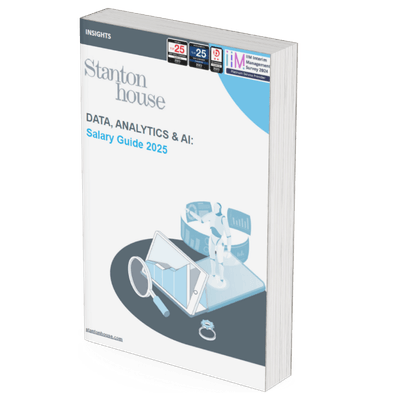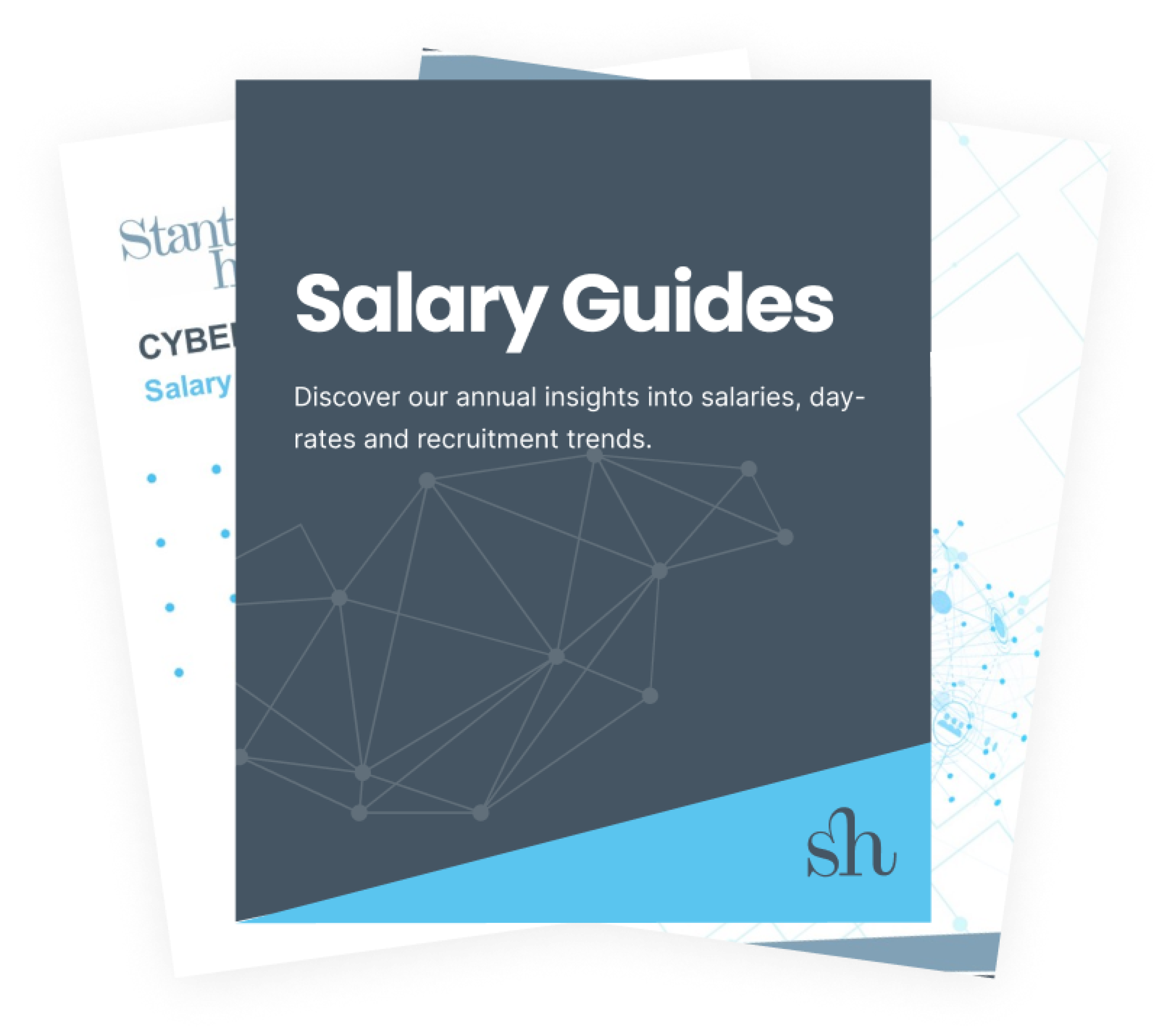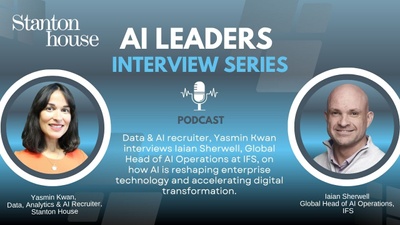
The Most In-Demand Skills & Roles in Data, Analytics & AI
In my role at Stanton House, I have a front-row seat to the ever-evolving world of Data, Analytics, and AI. Every day, I speak with hiring managers urgently looking to fill specialist roles, and candidates eager to future-proof their careers.
What’s clear is this: the pace of technological change is outstripping the talent supply.
The Skills Shortage That Isn’t Going Away
Businesses are generating more data than ever before, but finding professionals who can effectively manage, interpret, and act on that data is becoming increasingly difficult. There are several key areas where skills shortages are especially critical:
- Data Science & Machine Learning: The demand for data scientists and ML engineers continues to rise. Organisations are looking for deep expertise in Python or R, strong statistical foundations, and experience with advanced algorithms - skills that are still in short supply.
- Data Engineering: Behind every great data team is a rock-solid engineering function. Specialists in AWS, GCP, Azure, and tools like Hadoop or Spark are hugely sought after, especially those who can design and maintain reliable, scalable data pipelines.
- AI & Natural Language Processing (NLP): AI is reshaping industries, and with it, the demand for specialists in NLP, computer vision, and deep learning is soaring. Frameworks like TensorFlow and PyTorch are essential, but professionals who truly understand them are rare.
- Data Governance & Compliance: With the rise of AI comes the need for ethical data usage. Companies need professionals well-versed in data governance, GDPR, CCPA, and tools like Collibra to ensure both compliance and integrity.
- Cloud Data Platforms & Architecture: Platforms like Snowflake and Databricks have become must-haves. Cloud data architects and engineers are in high demand, particularly those who can implement secure, scalable infrastructures.
- Data Strategy & Leadership: As data becomes central to business strategy, companies need leaders who understand both the technical and commercial sides of transformation.
- Data Visualisation & Communication: It’s not just about crunching the numbers—it’s about telling the story. Professionals who can bring data to life with tools like Tableau or Power BI and communicate insights clearly are indispensable.
One of the biggest misconceptions I encounter is the belief that there’s an abundance of available talent. The reality is very different. Projects stall, business-as-usual teams become overstretched, and growth is hindered when businesses underestimate the complexity of hiring in this space.
High-Demand & Emerging Roles
Roles that blend technical skills with strategic insight are especially crucial. The ones I see most in demand right now include:
- AI Engineers
- Data Engineers
- AI Analysts & ML Analysts
- BI Analysts
But the landscape is shifting quickly. We’re also seeing a rise in more niche and emerging roles, including:
- Real-Time Data Architects – critical for building event-driven architectures that support rapid decision-making.
- Synthetic Data Specialists – especially in industries like finance and healthcare where data privacy is key.
- ESG Data Officers & Sustainability Analysts – helping organisations integrate environmental and social governance into their reporting.
- AI Ethicists & Responsible AI Officers – ensuring that AI systems are fair, explainable, and compliant with regulations.
Upskilling to Stay Ahead
If you’re a professional working in or moving into this space, the best way to stay competitive is through continuous upskilling. The areas that offer the most long-term value include:
- AI/ML Development & Deployment – especially using TensorFlow, PyTorch, and MLOps practices.
- Cloud Computing – expertise in AWS, Azure, and Google Cloud is increasingly essential.
- Programming Languages – particularly Python, R, and SQL.
- Ethical AI & Data Practices – understanding bias, privacy, and regulation is no longer optional.
On the employer side, those who invest in learning and development initiatives - whether through internal training or strategic partnerships - are not only closing the skills gap faster but are also better positioned to attract and retain top talent.
Data, Analytics & AI Salary Guide 2025
The demand for Data & Analytics talent isn’t just about technical skills - it’s about business impact. Whether you’re hiring or looking for your next move, staying ahead of the curve requires adaptability, investment, and an understanding of where the market is heading.
Download a copy of our latest salary guide. Inside, you’ll discover the salary ranges and contractor day rates across Data, Analytics & AI roles.
If you’re looking for support navigating this space, whether you're building a team or exploring your next opportunity, I’d love to help.



















